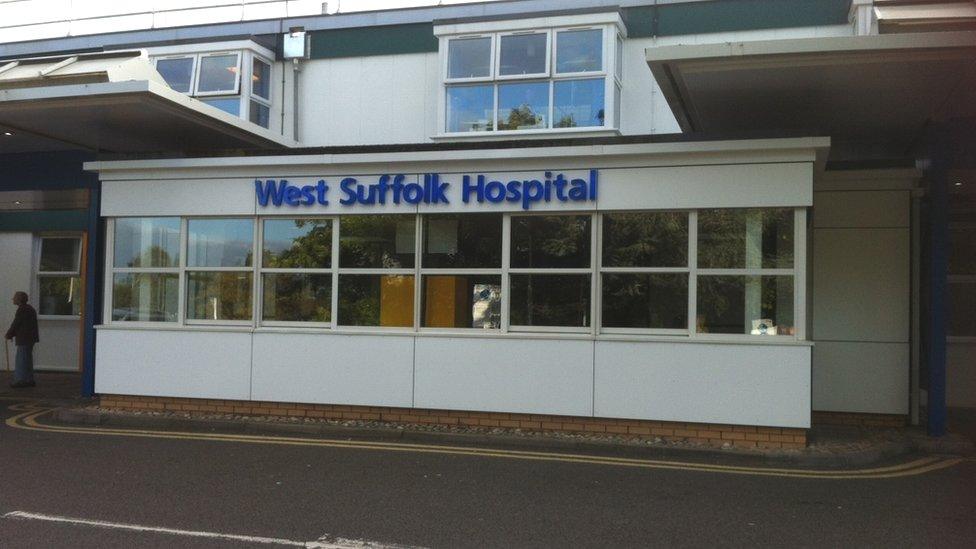West Suffolk Hospital's unsecured concrete areas will be reviewed
- Published
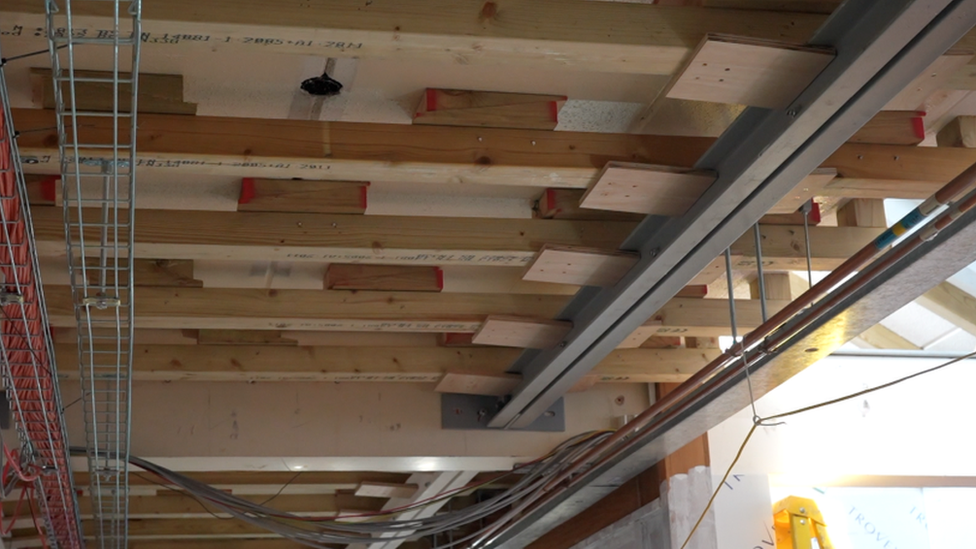
Roof supports are in place in many parts of the hospital
A hospital with "significant" amounts of a concrete with the potential to collapse will review areas not yet treated, hospital bosses said.
West Suffolk Hospital, in Bury St Edmunds, said extensive mitigation measures have taken place and bosses were confident the building is "safe".
In the past week, more than 150 schools have been closed or partially closed over concerns about the same concrete,
There are plans for a new hospital by 2030.
The current hospital building has structural defects associated with reinforced autoclaved aerated concrete (RAAC) used in its roof and walls.
RAAC was mostly used between the 1960s and 1980s in roofs, floors and walls of NHS buildings and schools and had an expected lifespan of 30 years.
NHS leaders took part in a conference call earlier this week to discuss ongoing risks.
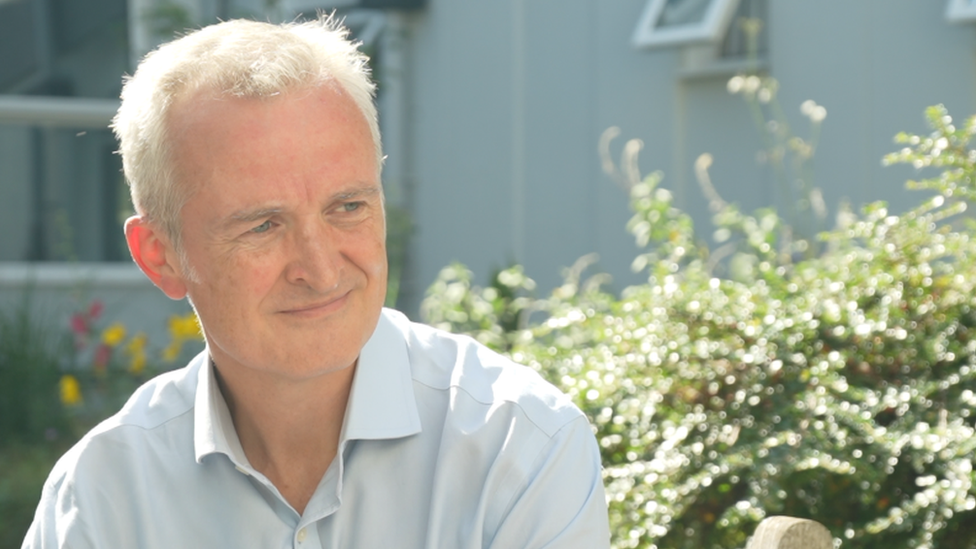
Dr Ewen Cameron, chief executive officer of West Suffolk NHS Foundation Trust, said: "We'll review all areas we haven't got fully fail-safed just to be certain they can continue to be used.
"We will just be checking all of the plans in the event of an incident are well understood and safe and will be working with colleagues in NHS England to make sure we've got everything under control."
Hospitals first became aware of the issue in 2018 and West Suffolk Hospital has installed roof supports and zinc anodes into the walls to prevent rust and further deterioration.
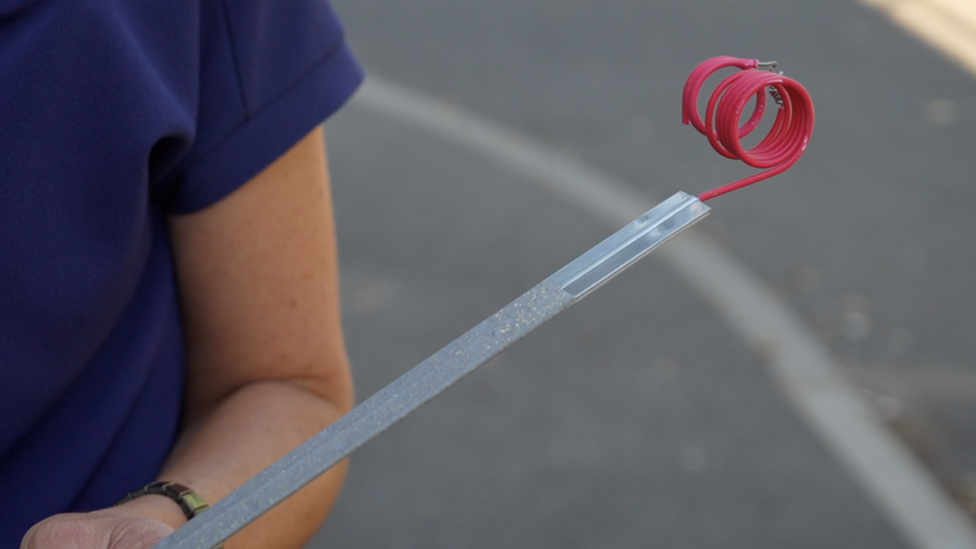
Zinc anodes have been plastered into affected walls to prevent rust of steel beams in the concrete
It also instigated research, alongside Loughborough University, to understand RAAC better, ensuring they could make the right decisions.
Dr Cameron said: "It would have been really easy not to have taken it seriously and not to have acted and we'd now be living in a situation where we'd be really worried about the safety of the organisation for the patients, staff and visitors.
"But because of all the work we've done we're really secure at the moment."
The trust said 83% of affected roof planks have mitigation in place and 96% of affected walls have been treated.
Radar equipment is among one method being used in ongoing monitoring and assessment as well as increased surveillance, the trust said.

Follow East of England news on Facebook, external, Instagram, external and X, external. Got a story? Email eastofenglandnews@bbc.co.uk, external or WhatsApp us on 0800 169 1830.
Related topics
- Published8 April 2022
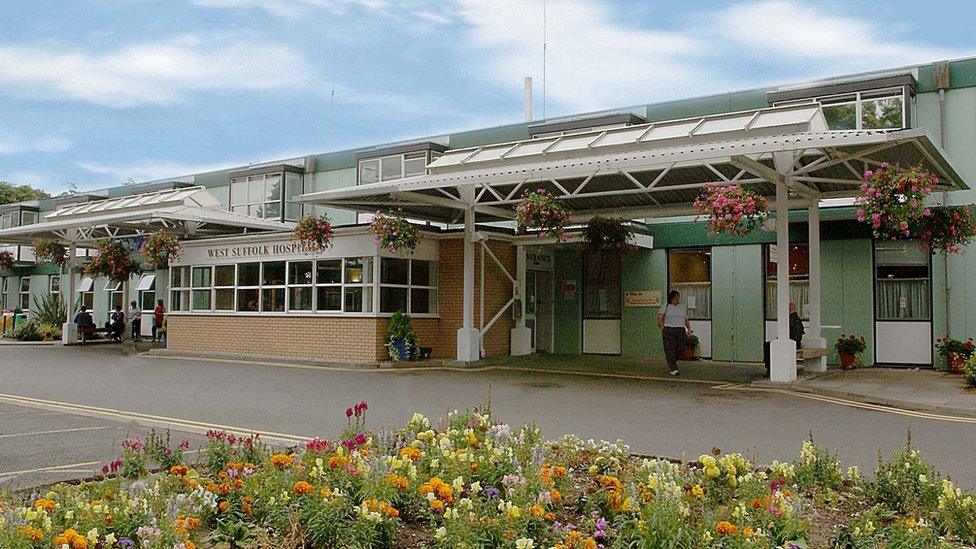
- Published13 November 2019
